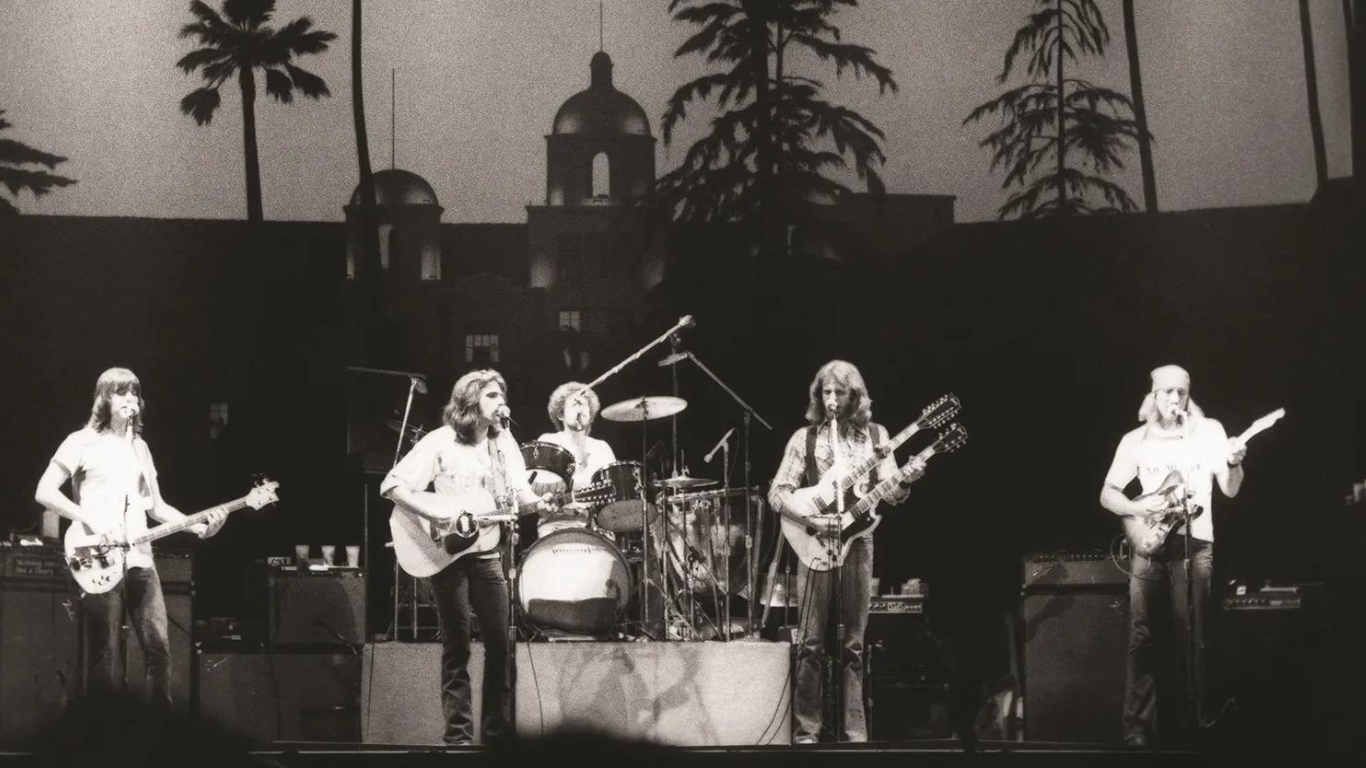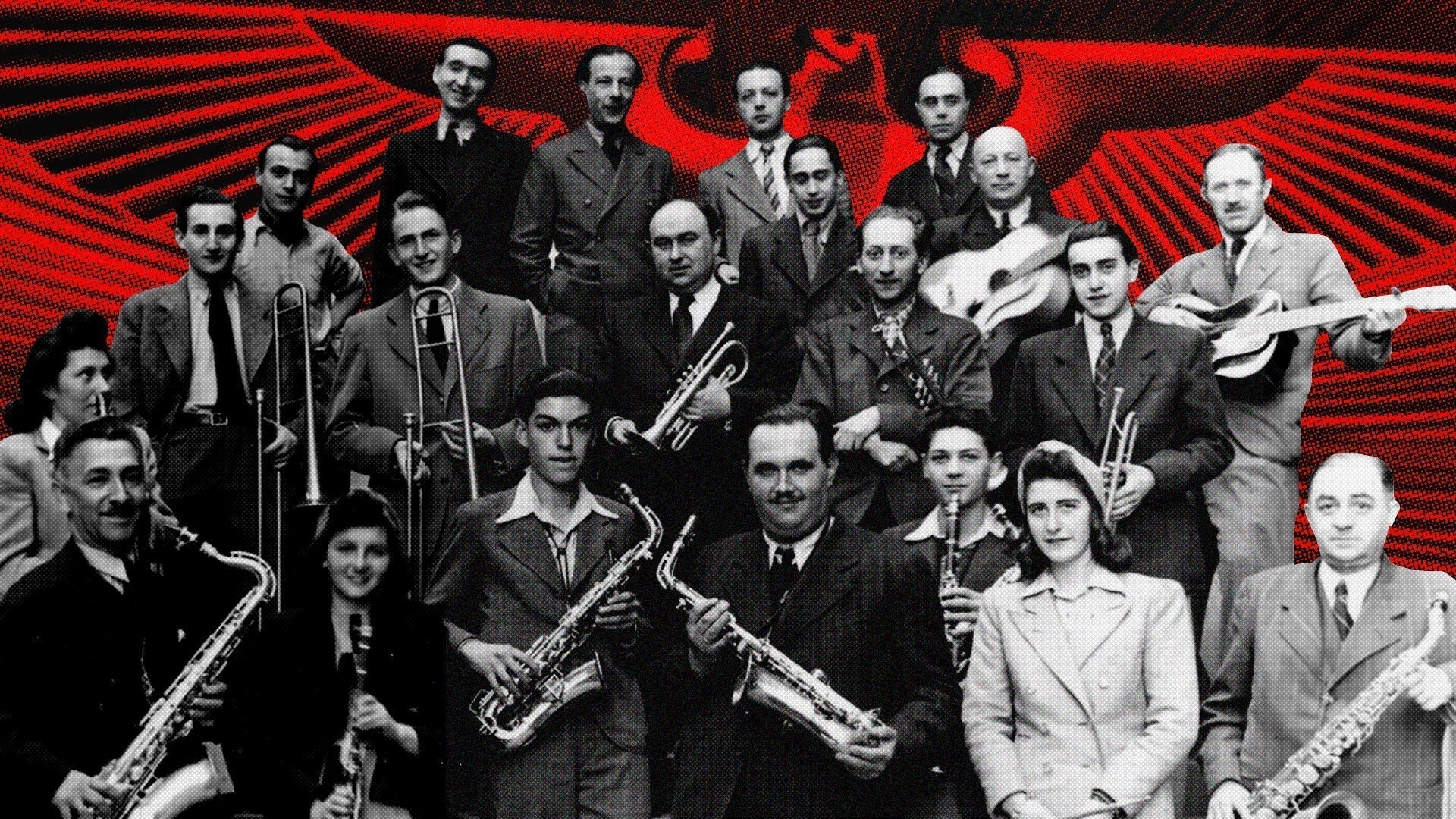The Many Faces Of 'Hotel California'

'Hotel California' has always been a significant cultural touchstone in music. Since its release in 1977, it’s consistently present in movies, music charts, and classic rock radio rotations.
Fans have spent countless hours trying to decode the true meaning of the song, long before the era of YouTube breakdowns and platforms like Genius and Reddit existed.
As fascinating as it would be to reveal the real meaning of 'Hotel California,' it's not possible.
But what’s more interesting about 'Hotel California' is how The Eagles managed to create such a mysterious and unforgettable song, that still engages music fans to discover its meaning today.
“Hotel California" began its journey in a Malibu beach house rented by Don Felder. One July afternoon, seated in the bedroom with a 12-string guitar, he was recording new ideas on a four-track recorder.
When Felder shared his recordings with Don Henley, it was this particular riff that captivated his fellow bandmate.
The majority of The Eagles were still newcomers to California, including Henley. In an interview, he expressed their perception of Beverly Hills as a mythical realm – a land of both hope and excess, where dreams were materialized but also felt hollow.
'Hotel California' drew inspiration from 'The Magus,' a 1965 novel by John Fowles. In the book, a young teacher named Nicholas Urfe travels to the Greek island of Phraxos, where he meets a wealthy recluse named Maurice Conchis .
.
Conchis subjects Nicholas to psychological experiments, blurring his sense of reality. This surreal theme resonated with Henley and Frey, who experienced similar unease in California and incorporated it into the song's lyrics.
It's a sensual song that describes the scent and feel of the air, transporting the listener into the mindset of the main character as they venture into an unfamiliar world: “On a dark desert highway, cool wind in my hair, warm smell of colitas rising up through the air.”
When we consider the song in the context of The Eagles' experiences in California, a clear meaning emerges. California is portrayed as a bright place, home to Hollywood and the music industry, filled with beautiful people and beaches, grand concerts, and large houses. It's a world that many aspire to, appearing flawless from the outside.
In the first verse, our protagonist enters the world and contemplates its uncertainties: 'I thought to myself, this could be heaven or this could be hell.'
Moving on to the second verse, we witness the glitz of California, with its riches and parties. However, there's a poignant moment when the protagonist asks for wine, only to be told, 'We haven't had that kind of spirit here since 1969.'
This line symbolizes the changing music industry of the 1960s. Initially, rock and roll felt revolutionary, but as the decade progressed, the industry became jaded and cynical. The psychedelic movement gave way to heavier drugs like cocaine and heroin, leading to a world of excess.
From the outside, the song can be considered a cautionary tale about the Hollywood lifestyle; but it is not the only interpretation of the song to exist.
The Eagles themselves have described it as a loss of innocence, suggesting it depicts a romantic relationship. The first verse depicts the protagonist as desperate and alone until he meets a woman, leading to marriage.
In the second verse, materialism strains the relationship as the protagonist longs for simpler times. The final verse sees the character attempting to escape the relationship, yearning to return to his former self but realizing the irreversible change it has caused.
Another viewpoint suggests that the song is solely about drugs, with 'colitas' representing marijuana and the 'mirrors on the ceiling' as a reference to cocaine. Another popular interpretation sees it as a religious allegory, likening the hotel to hell.
But why are there so many different interpretations of 'Hotel California'? It seems to stem from the intentional ambiguity.
Glenn Frey once said that vaguery is a key tool for songwriters.
Humanity has always been fascinated by symbols. Every culture develops its own intricate symbolic language, which inevitably finds expression in their art. 'Hotel California' is rich with symbolism and metaphors that resonate with its listeners.
Concepts like heaven and hell have come to symbolize various dichotomies in life, while symbols like candles and bells evoke notions of ritual and ceremony.
Similarly, we grasp the symbolic significance of wealth and materialism, understanding that references to champagne, Tiffany's, and Mercedes represent more than just objects, but rather the societal values and aspirations they embody.
For The Eagles, it provided a platform to convey their personal journeys, while for audiences, it became an open interpretation canvas.
It encapsulates not only the extravagance of California but also themes like temptation, relationship dynamics, and hidden struggles beneath superficial appearances in our lives.
Click here to read more:
How One Viral Hit Became A Curse For Gotye
Deciphering The Story Of Frank Oceans 'Blond'






Comments